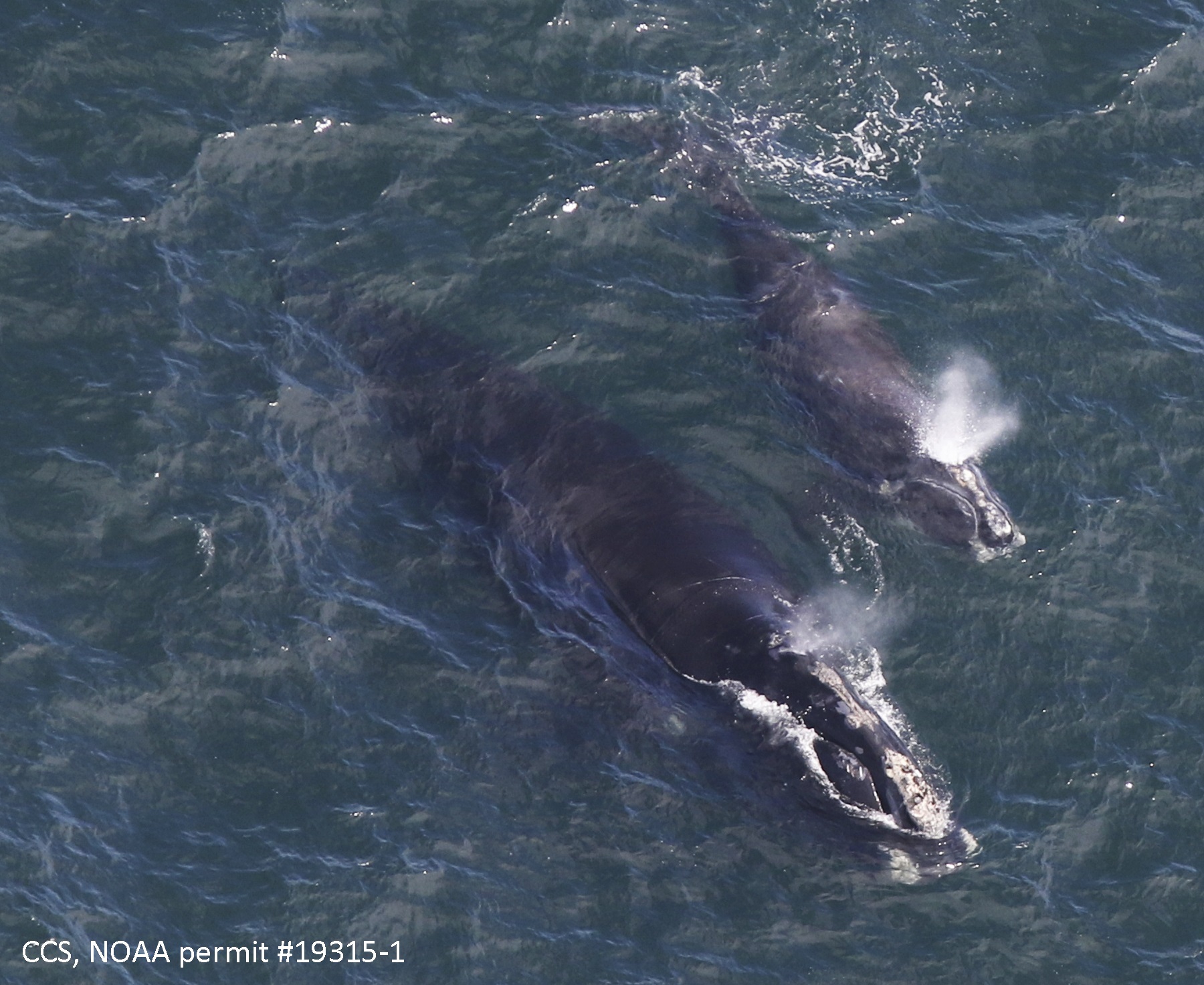As Right Whales Return To The Southeast, Researchers Worry For Their Future

In this April 11, 2019, photo provided by the Center for Coastal Studies, a baby right whale swims with its mother in Cape Cod Bay off Massachusetts. About 400 of the whales are left.
Amy James / Center for Coastal Studies/NOAA permit 19315-1 via AP
Now is the time when North Atlantic right whales begin showing up off the coast of Georgia and North Florida. One has already been seen near Jacksonville, spotted by the Navy this past weekend.
The endangered whales come from the coast of New England and Canada to the relatively warmer water of the Atlantic here to give birth and to nurse their calves. As their numbers have trended down the past few years, more and more is beginning to depend on the calving seasons.
Twenty years ago, whale spotters would find two dozen calves a year, according Clay George, a senior wildlife biologist with the Georgia Department of Natural Resources. That average first dropped by about half around 2010. Over the past three years, there have been 12 calves total, including one disastrous season when no calves were spotted.
“Births aren’t keeping up with the deaths, and the population is ticking down and quite quickly,” George said.
About 400 of the whales are left. This summer, 10 adults were found dead; autopsies showed several were killed by ships. They also get tangled in lobster and crab gear, which can exhaust and kill them, too.
Katie Jackson, a wildlife biologist with the state of Florida, said she’s hoping for a better calving season this year.
“We would need 16 or 17 or so, to just kind of break even and keep the population from declining, anything above that would be bonus whales,” she said.
Scientists say the mother whales may be having fewer calves because it’s getting harder for them to find food. Warmer ocean temperatures have caused their main food source to move north, and the whales have to travel farther to eat in the summer.
In a recent study, North Atlantic right whales in Massachusetts Bay turned up at surprising times of the year.
“Something is changing in this species and we don’t necessarily know how and we have ideas as to why, but what this means for the ultimate survival of the species is currently unclear,” said Aaron Rice, principal ecologist at Cornell’s Center for Conservation Bioacoustics, and one of the authors of the study. “That’s somewhat worrisome.”
North Atlantic right whales are typically off the coast of Georgia and Florida through the winter. During that time, researchers conduct surveys from planes, looking for the adults — and hopefully soon — for the calves.
Susanna Capelouto contributed to this story.







